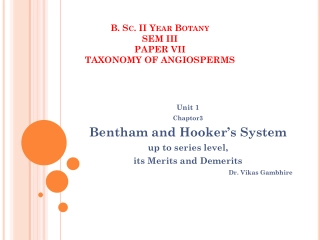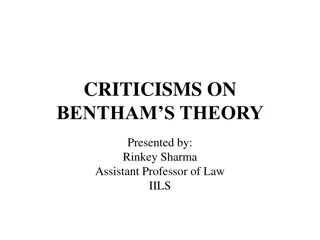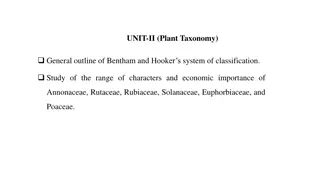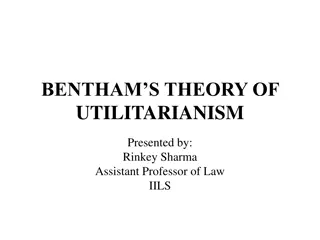Bentham's View on Law: Essential Elements and Eight Aspects Explained
Bentham's perspective on law, as presented by Assistant Professor Rinkey Sharma, delves into the definition and essential elements of law according to Bentham. This includes discussing the source of law, its subjects, objects, extent, aspects, force, remedial state appendages, and expression. The essential elements of law as outlined by Bentham, focusing on the concept of the sovereign, are also explored in detail.
Download Presentation

Please find below an Image/Link to download the presentation.
The content on the website is provided AS IS for your information and personal use only. It may not be sold, licensed, or shared on other websites without obtaining consent from the author. Download presentation by click this link. If you encounter any issues during the download, it is possible that the publisher has removed the file from their server.
E N D
Presentation Transcript
BENTHAMS VIEW ON LAW Presented by: Rinkey Sharma Assistant Professor of Law IILS
DEFINITION OF LAW A law may be defined as an assemblage of signs, declarative of a volition, conceived or adopted by the Sovereign in a State, concerning the conduct to be observed in a certain case by a certain person or class of person who is in the case in question are or are supposed to be subject to his power. The definition of law given by Bentham was a imperative one which means it was authoritative and commanding.
BENTHAMS EIGHT ASPECT Bentham further said that law must be considered in the light of eight different aspects. These are: 1. Source of law: source of Law = will of Sovereign. Will of Sovereign Adoption of laws to be made in future by subordinate authorities Adoption of laws based by former sovereign or subordinate authorities Personal will
2. subjects: it may be persons or things. 3. objects: the object of law is to regulate the conduct of the individual either by imposing duties or by granting permission depending on facts and circumstances. 4. Extent: law covers a portion of land on which acts have been done. 5. Aspect: according to him, every law has four aspects: i. command. ii. Prohibition. iii. Permission. iv. Obligation. Amongst these four aspects, command is only one of the four aspects of law and it is one of the four forms through which the sovereign expresses its VOLITION (will).
6. Force. 7. Remedial State Appendages: referred to any subsidiary law which are created to clarify the requirements of principal law which is providing sanction. 8. Expression: where expression of law is complete or clear or unambiguous, the judge must adopt literal rule of interpretation. It only where the expression of law is incomplete that the judge may resort to liberal interpretation.
ESSENTIAL ELEMENTS OF LAW According to Bentham, following are the essential elements of law: 1. SOVEREIGN He defined sovereign in the following words: Sovereign is any person or assemblage of persons to whose will a whole political community are (no matter on what account) supposed to be in a disposition to pay obedience and that in preference to the will of any other person. Characteristics of Bentham s sovereign i. Sovereign may be a single person or a group of person. ii. The power of sovereign is limited by express convention or by religious or political motivation. iii. The power of sovereign is divisible.
2. SANCTION According to Bentham, people obey the laws for two reasons: i. To avoid evil consequences (punishment) ii. To fulfill alluring motives/ Reward. Sanction can be either in the form of punishment or alluring motives. Sanction is something which gives binding force to any law. He divided sanction into four categories: i. Physical sanction: pure physical consequences of an action. Example: Hangover may be a sanction or motive controlling the amount I drink. ii. Political Sanction: it is legal sanction i.e., penalties attached by law to kinds of action. This additionally urged people not to do them. Example: punishment for drink and drive. Hence, it will give me a motive not to drink.
iii. Moral/Popular sanction: it includes things or actions which are publicly disapproved. It denotes inconvenience that one can suffer due to its non obedience. Example: being drunk and lying down in the street. iv. Religious Sanctions: it means the penalties attached to some action by God itself. Example: God prohibiting the act of drinking.
3. COMMAND According to Bentham, the four aspects of laws are: i. Command ii. Prohibition iii. Permission iv. Obligation Command is only one of the four aspects of law and it is one of the four forms through which the Sovereign VOLITION. expresses its





![❤[PDF]⚡ Gemini 5: Eight Days in Space or Bust (Springer Praxis Books)](/thumb/21621/pdf-gemini-5-eight-days-in-space-or-bust-springer-praxis-books.jpg)



















